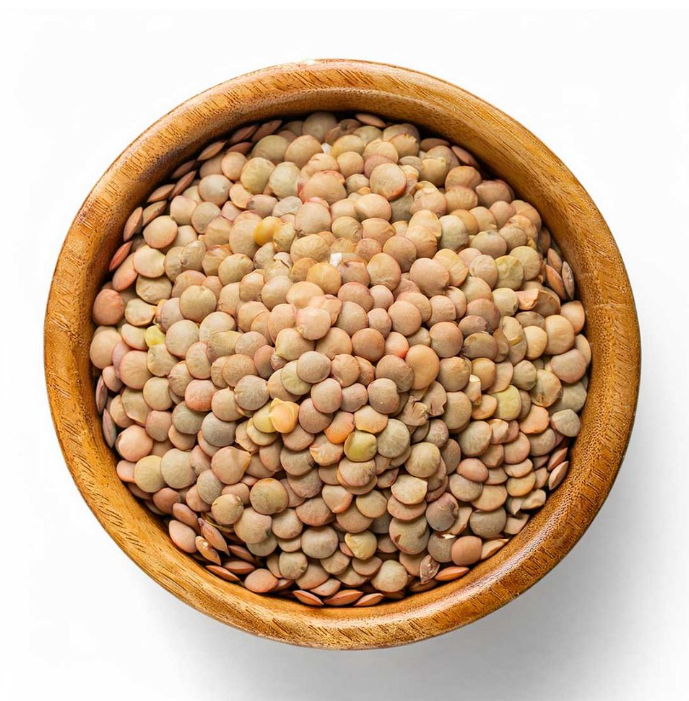Lentils, those small yet nutrient-packed legumes, have steadily gained recognition as a dietary superfood. Known for their versatility, affordability, and health benefits, lentils have become a staple in kitchens worldwide. Whether you’re a vegetarian, vegan, or simply looking for a nutritious addition to your meals, eating lentils every day can have significant effects on your body. So, what happens when you make this powerhouse a daily habit? Let’s dive into the science and benefits of lentils.
Nutritional Powerhouse: The Nutrients in Lentils

Lentils are a nutritional powerhouse, offering a wide array of vitamins, minerals, and macronutrients. One cup of cooked lentils contains approximately 18 grams of protein and 16 grams of dietary fiber. In addition, they provide essential nutrients like folate, iron, phosphorus, manganese, and B-vitamins.
- Rich in Polyphenols: Lentils are also loaded with polyphenols, which have antioxidant properties that help protect your cells from damage.
- Low in Fat and Calories: These legumes are naturally low in fat and calories, making them an ideal food for those aiming to maintain a balanced diet while keeping their calorie intake in check.
Immediate Health Benefits of Eating Lentils Daily
Once you start incorporating lentils into your daily meals, your body begins to reap several immediate health benefits. Lentils’ high fiber content improves digestion and regular bowel movements. Their protein supports muscle repair and general bodily functions. Additionally, the complex carbohydrates found in lentils offer a slow-release energy boost, keeping blood sugar stable and hunger at bay.
- Improved Digestion: The fiber in lentils promotes regular bowel movements and helps prevent constipation.
- Sustained Energy: Lentils offer complex carbs that provide a steady energy release without causing blood sugar spikes.
Lentils and Digestive Health: A Perfect Match
The high fiber content in lentils makes them particularly beneficial for digestive health. Lentils contain both soluble and insoluble fiber, which play different but equally important roles in your gut.
- Soluble Fiber: This forms a gel-like substance that slows digestion, aiding in stabilizing blood sugar levels and cholesterol.
- Insoluble Fiber: This type adds bulk to stool, promoting regularity and easing constipation.
Moreover, lentils act as a prebiotic, feeding the beneficial bacteria in your gut. A healthy gut microbiome is essential for overall digestion and immune function.
Weight Management Benefits of Lentils
Lentils can be a game-changer for those looking to manage or lose weight. Their high fiber and protein content helps keep you full for longer, reducing overall calorie intake. By promoting satiety, lentils can help curb overeating and prevent spikes in hunger.
- Low-Calorie, High-Nutrient Food: Lentils are low in calories, making them ideal for weight-conscious individuals who want to feel full without consuming excess calories.
- Protein and Fiber Synergy: This combination of nutrients slows digestion, prolonging feelings of fullness and reducing the likelihood of snacking between meals.
Cardiovascular Health: How Lentils Help Your Heart

Lentils are one of the best foods for supporting cardiovascular health. Their soluble fiber helps reduce LDL (bad) cholesterol, a major risk factor for heart disease. Moreover, lentils are rich in folate and magnesium, which play crucial roles in heart health.
- Folate: Reduces homocysteine levels, a compound associated with a higher risk of heart disease.
- Magnesium: Helps improve blood flow and regulate blood pressure by acting as a natural calcium channel blocker.
Regular consumption of lentils can help lower the risk of heart disease, stroke, and high blood pressure, making them a heart-healthy addition to your diet.
Lentils for Diabetics: Stabilizing Blood Sugar Levels
Lentils have a low glycemic index (GI), meaning they are digested and absorbed slowly, which helps to stabilize blood sugar levels. This makes them an excellent food for individuals with diabetes or those at risk of developing the condition.
- Low Glycemic Index: Lentils prevent rapid blood sugar spikes, which are dangerous for diabetics.
- Improved Glycemic Control: The high fiber content also aids in slowing the absorption of sugar into the bloodstream.
By including lentils in your diet, you can help manage blood sugar levels and reduce the risk of diabetes-related complications.
Effects on Skin and Hair: Lentils’ Beauty Benefits

Eating lentils daily can improve your skin and hair, thanks to their rich nutrient profile. Lentils are packed with protein, iron, and essential vitamins that support healthy skin and strong hair.
- Collagen Production: The protein in lentils supports collagen production, which is vital for skin elasticity and reducing signs of aging.
- Antioxidants: The antioxidants in lentils combat free radicals, which can lead to premature skin aging and damage.
- Hair Strengthening: Essential minerals like zinc and selenium found in lentils contribute to stronger, shinier hair.
Including lentils in your diet not only promotes inner health but also enhances your outer beauty by improving the look and feel of your skin and hair.
Potential Downsides of Excessive Lentil Consumption
While lentils are incredibly healthy, consuming them in excess may lead to some downsides. High fiber intake can sometimes cause digestive discomfort, including bloating and gas. Additionally, lentils contain anti-nutrients like phytic acid and lectins, which can interfere with the absorption of certain minerals.
- Digestive Discomfort: Eating too many lentils can lead to gas and bloating due to their high fiber content.
- Anti-Nutrients: Compounds like phytic acid can reduce the body’s ability to absorb minerals such as calcium and iron.
To minimize these potential downsides, it’s important to balance lentil consumption with other nutrient-rich foods and use proper preparation methods like soaking or sprouting lentils to reduce anti-nutrient levels.
How to Incorporate Lentils into Your Daily Diet

Lentils are incredibly versatile and can be incorporated into a wide variety of dishes. Whether you’re making soups, salads, or main courses, lentils add flavor, texture, and nutrition to your meals.
- Lentil Soups and Stews: These are hearty, filling options perfect for cold days or meal prepping.
- Lentil Salads: Combine cooked lentils with fresh veggies and a light vinaigrette for a refreshing, nutritious meal.
- Lentil Burgers: Use lentils as a plant-based substitute in burger patties.
- Grain Bowls and Curries: Lentils pair perfectly with grains like quinoa or rice and can be added to curries for a boost of protein and fiber.
Experiment with different types of lentils—red, green, brown, or black—to keep your meals interesting and varied.
Conclusion: Embrace the Power of Lentils
Eating lentils every day can offer a wide range of health benefits, from improved digestion and weight management to better cardiovascular health and stabilized blood sugar levels. Their rich nutritional profile, combined with their versatility in the kitchen, makes them an excellent addition to any diet.
However, as with anything, moderation is key. By balancing lentils with other nutrient-dense foods and preparing them properly, you can avoid potential downsides like digestive discomfort or nutrient absorption issues. Embrace the power of lentils and enjoy a healthier, more vibrant lifestyle!


